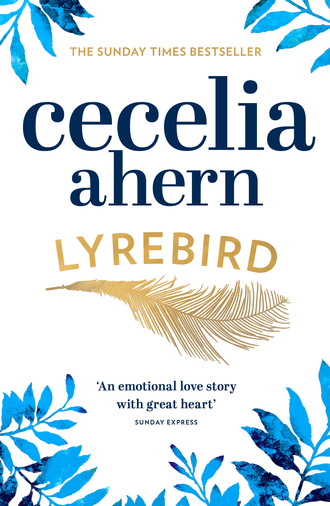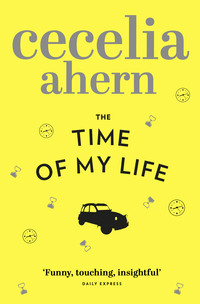
Полная версия
Lyrebird
He may not feel it’s right interviewing Joe on the day of his brother’s funeral but he does have some of his own questions he’d like answering. Despite his frustration with Bo for overstepping boundaries, he always benefits from her doing so.
Solomon takes off on his own to record. Now and then Bo points out an area, an angle, or an item that she would like Rachel to capture, but mostly she leaves them to their own devices. This is what Solomon likes about working with Bo. Not unlike the Toolin twins, Bo, Solomon and Rachel understand how each member of the team prefers to work and they give each other the space to do that. Solomon feels a freedom on these jobs that is lacking in the other work he takes on purely to pay the bills. A winter spent filming unusual body parts for a TV show Grotesque Bodies, followed by summer shooting at a reality fat fit club that sucked the life from him. He is grateful for these documentaries with Bo, for her curiosity. What irritates him about her are the very skill sets that help set him free from his regular day-jobs.
An hour into their filming, the funeral car arrives, closely followed by Joe, eighty years old, behind the wheel of the Land Rover. Joe climbs out of the jeep, wearing the same dark brown suit, sweater and shirt that they’ve seen on him hundreds of times. Instead of his Wellington boots he wears a pair of shoes. Even on this sunny day he wears what he’d wear in the depths of winter, perhaps a hidden layer less. A tweed cap covers his head.
Bo goes to him immediately. Rachel and Solomon follow.
‘Joe,’ Bo says, reaching out to him and shaking his hand. A hug would have been too much for him, not being comfortable with physical affection. ‘I’m so sorry for your loss.’
‘You didn’t have to come,’ he says, surprised, looking around at the three of them. ‘Weren’t you in America when I rang you?’ he asks, as if they were on another planet.
‘Yes, but we came home straight away to be here for you. Could we film, Joe? Would that be okay? People who watched your story would like to know how you’re doing.’
Solomon tenses up at Bo’s nerve but she also amuses him, he finds her gutsiness, her honesty, remarkable and rare.
‘Ara go on,’ says Joe, waving his hand dismissively as if it makes no difference to him either way.
‘Can we talk to you afterwards, Joe? Is there a gathering planned? Tea, sandwiches, that kind of thing?’
‘There’s the graveyard and that’s it. No fuss, no fuss. Back to business, I’m working for two now, aren’t I?’
Joe’s eyes are sad and tired with dark circles. The coffin is removed from the car and is placed on a trolley by the pallbearers. Including the film crew, there are a total of nine people in the church.
The funeral is short and to the point, the eulogy read by the priest, who mentions Tom’s work ethic, his love for his land, his long-departed parents and his close relationship with his brother. The only movement the stoic Joe makes is to remove his cap when Tom’s coffin is lowered into the ground at the graveyard. After that, he pops it back on his head, and walks to his jeep. In his head, Solomon can almost hear him say, ‘That’s that.’
After the burial, Bo interviews Bridget the housekeeper, though it’s a title that’s used loosely as she merely delivers food and dusts the cobwebs from their damp home. She’s afraid to look at the camera in case it explodes in her face, looking defensive as though every question is an accusation. Local garda Jimmy, the Toolin twins’ animal feed supplier and a neighbouring farmer whose sheep share the mountainous land with theirs, all refuse an interview.
The Toolin farm is a thirty-minute drive, far from anything, deep in the heart of the mountainside.
‘Are there books in the Toolin house?’ Bo asks out of nowhere. She does that often, blurts out random questions and thoughts as she slots the various pieces of information that come from different places together in her head to tell one clear story.
‘I’ve no idea,’ Solomon says, looking at Rachel. Rachel would have a better visual image and memory than any of them.
Rachel thinks about it, re-runs her shot-list in her head. ‘Not in the kitchen.’ She’s silent while she runs through the house. ‘Not in the bedroom. Not on open shelves, anyway. They have bedside lockers, could be in there.’
‘But nowhere else.’
‘No,’ Rachel says, certain.
‘Why do you ask?’ Solomon asks.
‘Bridget. She said that Tom was an “avid reader”.’ Bo scrunches her face up. ‘I wouldn’t peg him as a reader.’
‘I don’t think you can tell if someone’s a reader or not by looking at them.’
‘Readers definitely always wear glasses,’ Rachel jokes.
‘Tom never mentioned books. We lived their entire schedule with them for a year. I never saw him read, even hold a book. They didn’t read newspapers, neither of them. They listened to the radio. Weather reports, sports and sometimes the news. Then they’d go to bed. Nothing about reading.’
‘Maybe Bridget made it up. She was very nervous about being on camera,’ Solomon says.
‘She was very detailed about buying books for him at second-hand shops and charity sales. I believe she bought the books, I just can’t figure out why we never saw one book in the house and neither of them reading. That’s something I would have wanted to know about. What did Tom like to read? Why? And if he did, was it a secret?’
‘I don’t know,’ Solomon says, yawning, never really hung up on the minor details that Bo dissects, particularly now, as the hunger and tiredness kick in again. ‘People say odd things when they’ve a camera pointed at their face. What do you think, Rachel?’
Rachel is silent for a moment, giving it more clout than Solomon did. ‘Well he’s not reading anything now,’ she says.
They arrive at the Toolin farmhouse and are more than familiar with the land; they spent many dark mornings and nights, in torrential rain, traipsing over this treacherous land. The brothers had separated the work. As hill sheep farmers, they had split their responsibilities from the beginning and stuck to that. It was a lot of work for little income, but they had each stuck to their designated roles since their father died.
‘Tell us what happened, Joe,’ Bo says gently.
Bo and Joe sit in the kitchen of the farmhouse on the only two chairs at the plastic table. It’s the main room of the house and contains an old electric cooker, the four hobs the only part of it in use. It’s cold and damp, even in this weather. There is one socket on the wall with an extension lead feeding everything in the kitchen: the electric cooker, the radio, the kettle, and the electric heater. An accident waiting to happen. The hum of the heater, Solomon’s sound enemy. The room – in fact the entire house – smells of dog because of the two border collies that live with them. Mossie and Ring, named after Mossie O’Riordan and Christy Ring who were instrumental in Cork’s victory in the All-Ireland Hurling final in 1952, one of the few times the boys travelled to Dublin with their father, one of the only interests they have outside of farming.
Joe sits in a wooden chair, quiet, elbows on the armrest and hands clasped at his stomach. ‘It was Thursday. Bridget had dropped by with the food. Tom was to put it away. I went off. I came in for my tea and found him here on the floor. I knew right away that he was gone.’
‘What did you do?’
‘I put the food away. He hadn’t done that yet, so it was early enough when he died. Must have been soon after I left. Heart attack. Then I made a call …’ He nods at the phone on the wall.
‘You put the food away first?’ Bo asks.
‘I did.’
‘Who did you call?’
‘Jimmy. At the station.’
‘Do you remember what you said?’
‘I don’t know. “Tom’s dead”, I suppose.’
Silence.
Joe remembers that he’s on camera, remembers the advice Bo gave him three years ago to keep talking so it’s him that’s telling the story. ‘Jimmy said he’d have to ring the ambulance anyway, even though I knew there was no bringing him back. He came by himself then. We had a cuppa while we waited.’
‘While Tom was on the floor?’
‘Sure where would I move him?’
‘Nowhere, I suppose,’ Bo says, a faint smile on her lips. ‘Did you say anything to Tom? While you were waiting for Jimmy and the ambulance.’
‘Say anything to him?’ he says, as if she’s mad. ‘Sure he was dead! Dead as dead can be. What would I be sayin’ something for?’
‘Maybe a goodbye or something. Sometimes people do that.’
‘Ah,’ he says dismissively, looking away, thinking of something else. Maybe of the goodbye he could have had, maybe of the goodbyes he’d already had, maybe of the ewes that needed to be milked, the paperwork that needed to be filled.
‘Why did you choose the church today?’
‘That’s where Mammy and Daddy were married,’ he says.
‘Did Tom want his funeral to be held there?’
‘He never said.’
‘You never talked about your plans? What you’d like?’
‘No. We knew we’d be buried with Mammy and Daddy at the plot. Bridget mentioned the chapel. It was a grand idea.’
‘Will you be all right, Joe?’ Bo asks, gently, her concern genuine.
‘I’ll have to be, won’t I?’ He gives a rare smile, a shy one, and he looks like a little boy.
‘Do you think you’ll get some help around here?’
‘Jimmy’s son. It’s been arranged. He’ll do some things when I need him. Lifting, the heavy work. Market days.’
‘And what about Tom’s duties?’
‘I’ll have to do them, won’t I?’ He shifts in his chair. ‘No one else left to be doing it.’
Both Joe and Tom were always amused by Bo’s questions. She asked questions that had obvious answers; they couldn’t understand why she questioned things so much, analysed everything, when to them that was that, all the time. Why question something when the solution was obvious? Why even try to find another solution when one would do?
‘You’ll have to talk to Bridget. Give her your shopping list. Cook,’ Bo reminds him.
He looks annoyed at that. Domesticity was never something he enjoyed, that was Tom’s territory, not that Tom enjoyed it either, he just knew if he was waiting for his brother to feed him, he’d die of starvation.
‘Did Tom like reading?’ she asks.
‘Ha?’ he asks her, confused. ‘I don’t think Tom ever read a book in his life. Not since school, anyway. Maybe the sports pages when Bridget brought the paper.’
Solomon can sense Bo’s excitement from where he stands. She straightens her back, ready to dive into what’s niggling at her.
‘When you put away the shopping on Thursday, was there anything unusual in the bags?’
‘No.’
Understanding Joe’s grasp of the English language, she rephrases, ‘Was there anything different?’
He looks at her then, as if deciding something. ‘There was too much food, for a start.’
‘Too much?’
‘Two pans of bread. Two ham and cheese, sure I can’t remember what else.’
‘Any books?’
He looks at her again. The same stare. Interest piqued. ‘One.’
‘Can I see it?’
He stands and gets a paperback from a kitchen drawer. ‘There you go. I was going to give it to Bridget – thought it was hers, and the extras too.’
Bo studies it. A well-thumbed crime novel that Bridget had picked up from somewhere. She opens the inside hoping for an inscription but there’s nothing. ‘You don’t think Tom asked for this?’
‘Sure why would he? And if he did it wasn’t just his heart that there was something wrong with.’ He says this to the camera and chuckles.
Bo hangs on to the book. ‘Going back to Tom’s duties. What are the duties you have on the farm now?’
‘Same as usual.’ He thinks about it as if for the first time, all the things that Tom did during his day that he never thought about, or the things they used to discuss in the evening. ‘He saw to the well by the bat house. I haven’t been there for years. I’ll have to keep an eye on that, I suppose.’
‘You never mentioned the bat house before,’ Bo says. ‘Can you take us there?’
The four of them and one of the loyal sheepdogs get into Joe’s jeep. He drives them across the land, on dirt tracks that feel dangerous now, never mind during the winter on those stormy days or icy mornings. An eighty-year-old cannot do this alone, two eighty-year-olds were barely managing it. Bo hopes that Jimmy’s son is an able-bodied young man who does more than Joe asks, because Joe’s not a man to ask for help.
A rusted railing stops them in their tracks. Solomon beats Joe to it and jumps out of the jeep to push it open. He runs to catch up with them. Joe parks in a clearing by the forest, Solomon collects his equipment. They must walk up a trail the rest of the way. The dog, Mossie, races up ahead of them.
‘Bad land, we could never do nothing with it, but we kept it nonetheless,’ Joe tells them. ‘In the thirties, Da planted Sitka spruce and lodgepole pine. Thrive in bad soils, good with strong winds. About twenty acres. You can see Gougane Barra Forest Park from up here.’
They walk through the trails and come to a clearing with a shed that was once painted white but now is faded, beaten away by time, and reveals the dull concrete beneath. The windows have been boarded up. Even on this beautiful day it’s bleak, the austere outbuilding at odds with the beautiful surroundings.
‘That’s the bat house,’ Joe explains. ‘Hundreds of them in there. We used to play in there as boys,’ he chuckles. ‘We’d dare each other to go inside, lock the door and count for as long as we could.’
‘When is the last time you were here?’ Bo asks.
‘Ah. Twenty years. More.’
‘How often would Tom check this area?’ Bo asks.
‘Once, twice a week, to make sure the well wasn’t contaminated. It’s over there, behind the shed.’
‘If you can’t make money from this land, why didn’t you sell it?’
‘After Da died, the land was up for sale. Some Dublin lad wanted to build a house up here but couldn’t do anything with that bat house. Environmental people’ – he throws his chin up in the air to note his annoyance – ‘they said the bats were rare. Couldn’t knock down the shed or build around it because it would ruin their flight path, so that was that. Took it off the market then. Mossie!’ Joe calls for his dog, who’s disappeared from view.
They cut filming. Rachel moves close to the bat house, presses her face up to the windows to see in through the cracks in the wood. Bo notices Solomon walk away, equipment in hand, and head towards the forest. She hopes he’s heard something interesting to record and so lets him go. Even if he hasn’t, she knows she’s gotten him and Rachel up early and driven them here with no food, and they can’t function without it, unlike her, and she’s starting to sense their irritation. She lets him go, for a few moments on his own.
‘Where’s the well?’
‘Up there, beyond the bat house.’
‘Would you mind if we filmed you checking the well?’ she asks.
He gives her that same grunt that she recognises as signalling he’ll do whatever she wants, he doesn’t care, no matter how odd he regards her.
While Rachel and Joe talk bats – Rachel can hold a conversation about just about anything – Bo takes a little wander around the back of the bat house. There’s a cottage behind it, run-down, the outside in the same condition as the bat house, the white paint almost completely gone and the grey concrete dreary amidst all the green. Mossie wanders around in front of the cottage sniffing the ground.
‘Who lived here?’ Bo calls.
‘Ha?’ he shouts, unable to hear her.
She studies the cottage. This building has windows. Clean windows.
Joe and Rachel follow her and turn the corner into the path of the cottage.
‘Who lived here?’ Bo repeats.
‘My da’s aunt. Long time ago. She moved out, the bats moved in.’ He chuckles again. He closes his eyes while he tries to think of her name. ‘Kitty. We tormented the woman. She used to hit us with a wooden spoon.’
Bo moves away slightly, closer to the cottage, she studies the area. This house has a vegetable patch beside it, some fruit growing too. There are wildflowers sitting in a tall glass in one of the windows.
‘Joe,’ Bo says. ‘Who lives here now?’
‘Nobody. Bats maybe,’ he jokes.
‘But look.’
He looks. He takes in all that she has already absorbed. The fruit and vegetable garden, the cottage, the windows that are gleaming, the door painted green, fresher paint than anything else in the vicinity. He’s genuinely confused. She walks around the back. She finds a goat, two chickens wandering around.
Heart pounding, she calls out. ‘Somebody is living in there, Joe.’
‘Intruders? On my land?’ he says angrily, an emotion she has never seen from Joe Toolin or his brother in all her time with them.
Hands in thick fists by his side, he charges towards the cottage, as fast as he can, and she tries to stop him. Mossie follows him.
‘Wait, Joe, wait! Let me get Solomon! Solomon!’ she yells, not wanting to alert the person inside the cottage, but having no choice. ‘Rachel, film this.’ Rachel is already on the case.
But Joe doesn’t care about her documentary and places his hand on the door knob. He’s about to push open the door but stops himself – he’s a gentleman, after all. He knocks instead.
Bo looks in the direction of the forest where Solomon disappeared, then back to the cottage. She could kill Solomon right now, she shouldn’t have let him wander off, it was unprofessional of him. She let him leave because she knew he was famished, because as his girlfriend she knows how he becomes. Grumpy, unfocused, ratty. Again, one of the frustrating parts of being romantically linked with a colleague is actually caring when your decisions mean they go hungry. The sound will have to be compromised. At least they’ll have a visual, they can add sound in after.
‘Careful, Joe,’ Rachel says. ‘We don’t know who’s in there.’
There’s no answer at the cottage and so Joe pushes open the door and steps inside. Rachel is behind him, and Bo hurries after.
‘What the …?’ Joe stands in the centre of the room, looking around, scratching his head.
Bo quickly points out singular items she wants Rachel to capture.
It’s a one-roomed cottage. There’s a single bed by one wall, with a view through one of the small windows beside the vegetable patch. On the other side there’s a natural fire, a cooker, not too dissimilar to the one in Joe’s farmhouse, and an armchair beside shelves of books. The four shelves have been filled to the brim and stacks of books are piled neatly on the floor beside it.
‘Books,’ Bo says aloud, wonderingly.
There are a half-dozen sheepskin rugs on the floor, no doubt to warm the cold stone floor during the desperate winters in a house with no obvious heating other than the fire. There’s sheepskin across the bed, sheepskin on the armchair. A small radio sits alone on a side table.
It has a distinctly feminine feel. Bo’s not exactly sure why she feels this. She knows it’s biased to base this on the glass of flowers; there’s no scent but it feels feminine, not the dirty rustic feel of Tom and Joe’s farmhouse. This feels different. Cared for, lived in, and there’s a pink cardigan folded over the top rail of a chair. She nudges Rachel.
‘Got it already,’ she says, the sweat pumping from her forehead.
‘Keep filming, I’ll be back in a minute,’ Bo says, and runs out of the cottage towards the forest.
‘Solomon!’ she yells at the top of her voice, knowing there are no neighbours around to disturb. She returns to the clearing in front of the bat house, sees him a short way down the hill in the forest, just standing there, looking at something, as though he’s in a trance. His sound bag is on the ground a few feet away from him, his boom mic leaning up against the tree. The fact that he’s not even working tips her over the edge.
‘Solomon!’ she yells, and he finally looks at her. ‘We found a cottage! Someone lives there! Equipment, hurry, move, now!’ She’s not sure if the words she has used make sense or if they’re in the right order, she needs him to move, she needs sound, she needs to capture the story.
But what Bo hears in response is a sound unlike anything she’s heard before.
3

The sound is a bit like a squawk, from a bird, or something not human, but it comes from a human, from the woman standing at the tree.
Bo runs down into the forest and the blonde woman’s basket goes flying up in the air, its contents fall out on to the forest floor and her eyes are wide in terror.
‘It’s okay,’ Solomon says, hands out, wanting to calm her, standing between Bo and the stranger like he’s trying to tame a wild horse. ‘We’re not going to hurt you.’
‘Who is that?’ Bo calls.
‘Just stay there, Bo,’ Solomon says, annoyed, without turning.
Of course she ignores him and comes closer. The young woman makes a sound again, another unusual, kind of chirping sound, if a chirp could ever seem like a bark. It’s directed at Bo.
Bo is gobsmacked, but a smile crawls to her face with fascination.
‘I think she wants you to back off,’ Solomon says to her.
‘Okay, Doctor Doolittle, but I haven’t done anything wrong,’ she says, annoyed at being told what to do. ‘So I’m not leaving.’
‘Well then just don’t come any closer,’ Solomon says.
‘Sol!’ she says, looking at him with shock.
‘Hey, hey, it’s okay!’ he says to the girl, slowly moving a little closer, getting on his hands and knees to pick up the flowers and herbs from the ground. He places them in her basket and holds it out to her. She stops her chirping but is clearly in distress, looking from Solomon to Bo, eyes wide and fearful.
‘My name is Bo Healy. I’m a filmmaker and we’re here with Joe Toolin’s permission.’ She holds out her hand.
The blonde woman looks at her hand and makes a series of more distressed sounds, none of them words.
‘Oh my God.’ Bo looks at Solomon, wide-eyed, taking out her phone and calling Rachel. ‘Rachel, come up to the clearing, quickly. I need the camera.’ She hangs up. ‘Record this,’ she mouths to Solomon, signalling his equipment with her eyes, afraid to move the rest of her body.
The young woman is firing off one bizarre sound after the next and it is the strangest thing Solomon has ever witnessed. It doesn’t sound like it’s coming from her voice box, it’s like a recording. He’s so stunned and fascinated he can’t stop watching her, he looks for wires and there are none. This is real.
He takes a few steps in the direction of his audio bag.
Rachel appears through the trees, rushing with her camera in her hands, closely followed by Joe.
‘What the hell is going on down there?’ Rachel shouts, coming to an abrupt halt as she sees with her own eyes.
The young woman turns to Rachel and starts making the sound of a car alarm. Solomon looks at what’s happening from her perspective, surrounded by three people, strangers in the forest, she must feel completely trapped. He can’t bring himself to record this. It’s not right.
Bo senses his hesitancy and sighs. ‘Oh, for God’s sake,’ she snaps. She does what she should have done at the outset had she thought of it at the time, and films the unfolding scene with her phone.
Joe joins them.
The blonde woman stops making her sounds, for a moment she looks at Joe and she seems relieved.
‘Who are you?’ Joe shouts, half hidden by a tree. The fear is obvious in his voice. ‘What are you doing on my land?’
She panics again, backing away through the trees.
Solomon watches them all. Bo is filming on her phone, Rachel pointing the camera at her, Joe a fierce face on him.
Solomon is exhausted, he needs to eat.
‘Stop!’ he yells and everybody goes silent. ‘You’re frightening her. Everybody step away. Let her go.’









